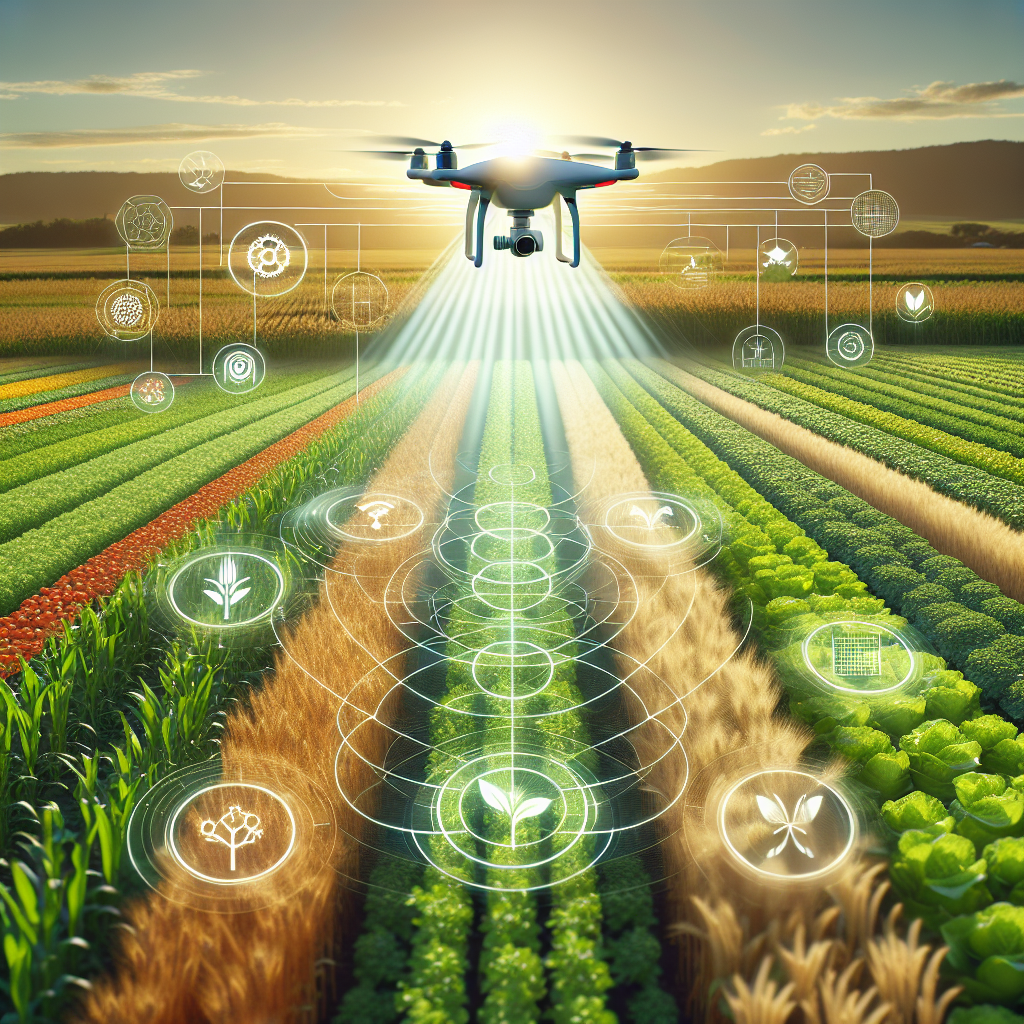Enhancing Crop Rotation with AI Technologies
Crop rotation is a traditional agricultural practice that involves planting different crops in the same field in sequential seasons to improve soil health, increase crop yield, and reduce the risk of pest and disease outbreaks. While crop rotation has been practiced for centuries, recent advances in artificial intelligence (AI) technologies have the potential to revolutionize and enhance this age-old farming technique.
AI technologies, such as machine learning algorithms and predictive analytics, can help farmers make more informed decisions about which crops to rotate, when to rotate them, and how to optimize their crop rotation schedules for maximum productivity and sustainability. By analyzing large amounts of data, including soil health, weather patterns, crop performance, and market trends, AI can provide valuable insights and recommendations to farmers to help them improve their crop rotation practices.
One of the key benefits of using AI technologies to enhance crop rotation is the ability to customize crop rotation plans based on specific field conditions and farming goals. By taking into account factors such as soil type, climate, crop history, and market demand, AI can help farmers design crop rotation schedules that are tailored to their individual needs and objectives. This level of customization can lead to higher crop yields, better soil health, and increased profitability for farmers.
In addition to customizing crop rotation plans, AI technologies can also help farmers predict and mitigate potential risks associated with crop rotation, such as pest and disease outbreaks. By analyzing historical data and monitoring current conditions, AI can identify patterns and trends that may indicate the likelihood of pest or disease infestations in specific crops. This information can help farmers take proactive measures to prevent or minimize the impact of these risks, such as implementing pest control measures or adjusting their crop rotation schedules.
Furthermore, AI technologies can also help farmers optimize their use of resources, such as water, fertilizers, and pesticides, in their crop rotation practices. By analyzing data on soil nutrient levels, water availability, and pest populations, AI can recommend the most efficient and sustainable ways to manage these resources throughout the crop rotation cycle. This can help farmers reduce input costs, minimize environmental impact, and improve overall farm productivity.
Overall, the integration of AI technologies into crop rotation practices has the potential to revolutionize modern agriculture by making farming more efficient, sustainable, and profitable. By leveraging the power of AI to analyze data, make predictions, and provide recommendations, farmers can optimize their crop rotation schedules, mitigate risks, and enhance the overall performance of their farms.
FAQs:
Q: How can AI technologies improve crop rotation practices?
A: AI technologies can improve crop rotation practices by analyzing data on soil health, weather patterns, crop performance, and market trends to provide valuable insights and recommendations to farmers. This can help farmers customize their crop rotation plans, predict and mitigate risks, and optimize their use of resources for maximum productivity and sustainability.
Q: What are the benefits of using AI technologies in crop rotation?
A: Some of the benefits of using AI technologies in crop rotation include higher crop yields, better soil health, reduced risk of pest and disease outbreaks, customized crop rotation plans, optimized resource management, and increased profitability for farmers.
Q: How can farmers integrate AI technologies into their crop rotation practices?
A: Farmers can integrate AI technologies into their crop rotation practices by using AI-powered software applications or platforms that analyze data and provide recommendations for optimizing crop rotation schedules, mitigating risks, and improving overall farm performance.
Q: What are some examples of AI technologies that can enhance crop rotation?
A: Some examples of AI technologies that can enhance crop rotation include machine learning algorithms, predictive analytics, remote sensing technologies, and precision agriculture tools. These technologies can help farmers make data-driven decisions about crop rotation and improve the sustainability and productivity of their farms.

